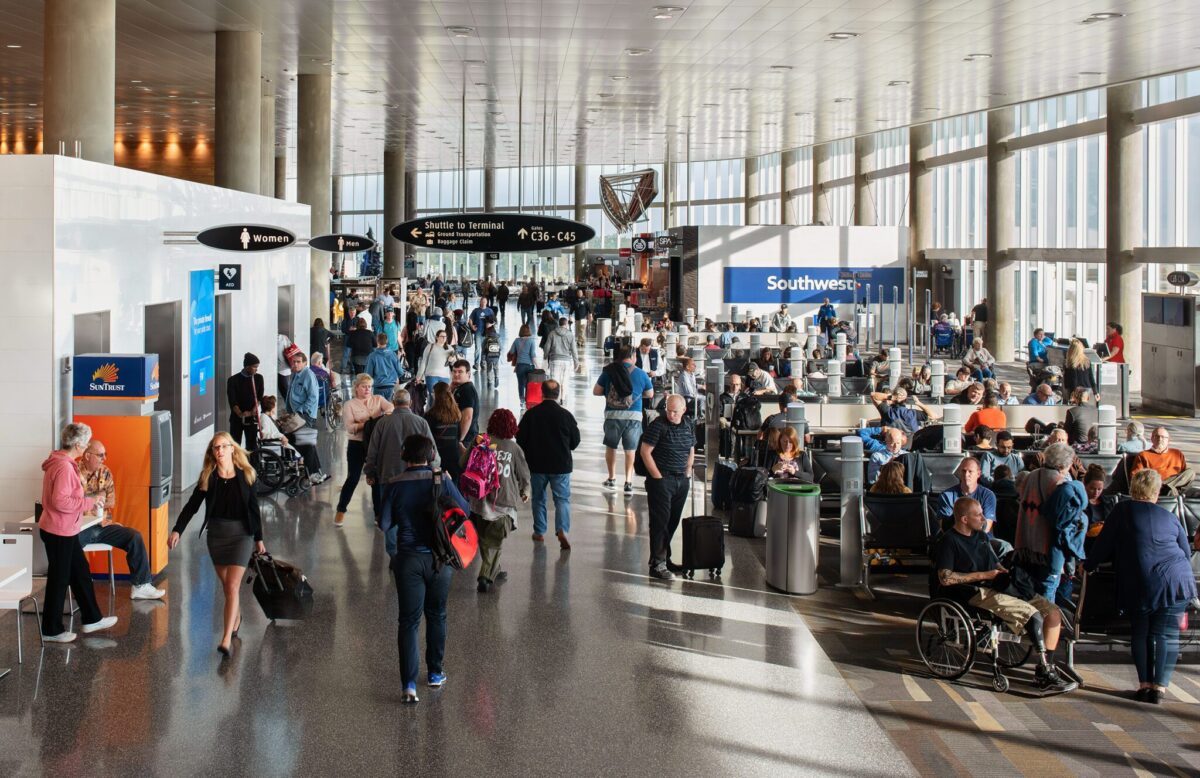TripActions Breaks Into Financial Technology

Skift Take
 Watch out, TripActions is at it again. The corporate travel management company has launched a new payments product using virtual cards to make life easier for both business travelers and accountants.
Watch out, TripActions is at it again. The corporate travel management company has launched a new payments product using virtual cards to make life easier for both business travelers and accountants.
It will be interesting to see if TripActions Liquid catches on, especially with its smaller clients that may want to retain their usual policy of forcing employees to pay for their own travel upfront (it’s just smart business, really).
It’s difficult to see how the announcement represents a game changer for TripActions, as the company itself suggests, aside from improving its prospects of raising another huge funding round under the guise of becoming a financial technology company. Sure, it’s another revenue stream, but virtual cards have been available in corporate travel for some time. Check out my story below.
We’ve also got the latest on Hong Kong’s devastated hotel sector in the wake of the coronavirus outbreak and the dish on American Airlines’ truce with Qatar Airways after a few years of drama.
Finally, check out my interview with Neuehouse CEO Josh Wyatt. He has some compelling thoughts on how the future of business travel is intersecting with high-touch experiences.
If you have any feedback about the newsletter or news tips, feel free to reach out via email at [email protected] or tweet @sheivach.
— Andrew Sheivachman, Senior Enterprise Editor
Featured Stories
 TripActions Launches Virtual Card Product for Corporate Travelers: Virtual cards aren’t anything new in corporate travel, despite limited adoption. But stronger integration with travel booking apps like TripActions could help mainstream the technology, which benefits both travelers and administrators.
TripActions Launches Virtual Card Product for Corporate Travelers: Virtual cards aren’t anything new in corporate travel, despite limited adoption. But stronger integration with travel booking apps like TripActions could help mainstream the technology, which benefits both travelers and administrators.
Sabre to Boost Its Travel Tech Investment by $150 Million This Year: Sabre CEO Sean Menke is right to highlight the progress his business has made during the three years since he took the top job. He’s also right to insist the company needs to invest more in tech to keep up with the travel industry’s pace of digital change. But will investors be patient?
Cultural Experiences Add Competitive Edge to Co-Working: CEO Interview: NeueHouse is set to grow and bring its intricate form of hospitality around the world. It turns out creating a truly customized experience for members is a lot of work.
Abandoned Hong Kong Hotels Go Into Survival Mode as Virus Fallout Spreads: As hotel occupancy plunges to a single digit, Hong Kong’s leadership toward one of its most important industries is being put to the test during the coronavirus crisis. So is the leadership of hotel CEOs in keeping their companies whole.
American Airlines and Qatar Airways Agree to Make Up and Work Together Again: Emirates, Etihad Airways, and Qatar Airways probably take some government help. But many airlines take indirect subsidies. The Gulf trio is nowhere near as evil as depicted in recent rhetoric by U.S. carriers. American made the right decision in renewing this codeshare agreement.
Expedia Begins Layoffs Targeting 12 Percent of Its Workforce: Diller and Kern are taking an ax, as promised, to Expedia Group’s payroll. This could be just the first round, and the thinking might be: Why sell to private equity, have those folks squeeze out the cost savings, and reshape the business when we can do it ourselves?
The Future of Travel
Why Do U.S. Politicians Completely Ignore the Travel Industry in Election Season? The travel industry is truly a diffused set of forces, both big business and people powered. Unfortunately it’s easier for politicians to scare people with an imaginary foreign threat than articulate a vision for a better, more connected world.
Oyo CEO Defends Business Practices That Anger Some Hoteliers: If you were thinking after a tumultuous last few months that a reformed Oyo would emerge, then guess again. The hotel chain is giving little ground on the basics of its business model, although it vows to get better on the execution of it all.
Event Cancellations From Coronavirus Rekindle Interest in Online Events: Virtual events have become more popular in recent years due to improving tech as well as their cost-effectiveness and environmental merit. Now, with the coronavirus prompting event cancellations and travel bans worldwide, virtual events have never been more timely.
Senior Enterprise Editor Andrew Sheivachman [email protected] curates the Skift Corporate Travel Innovation Report. Skift emails the newsletter every Thursday.
Subscribe to the Free Skift Corporate Travel Innovation Report




